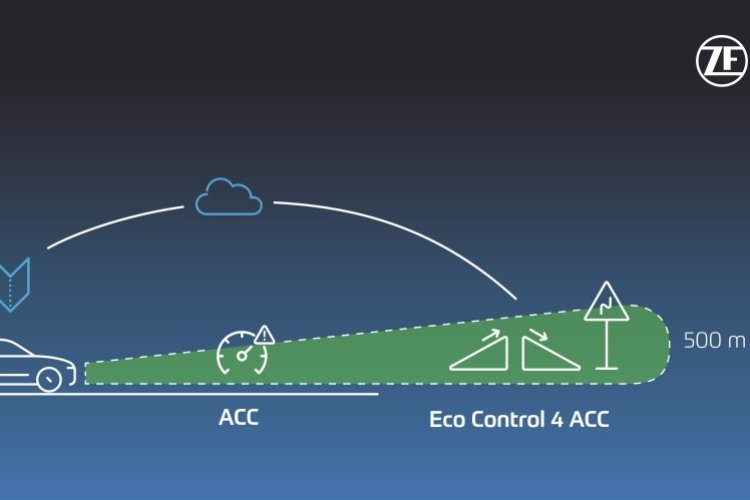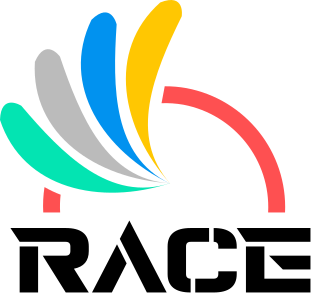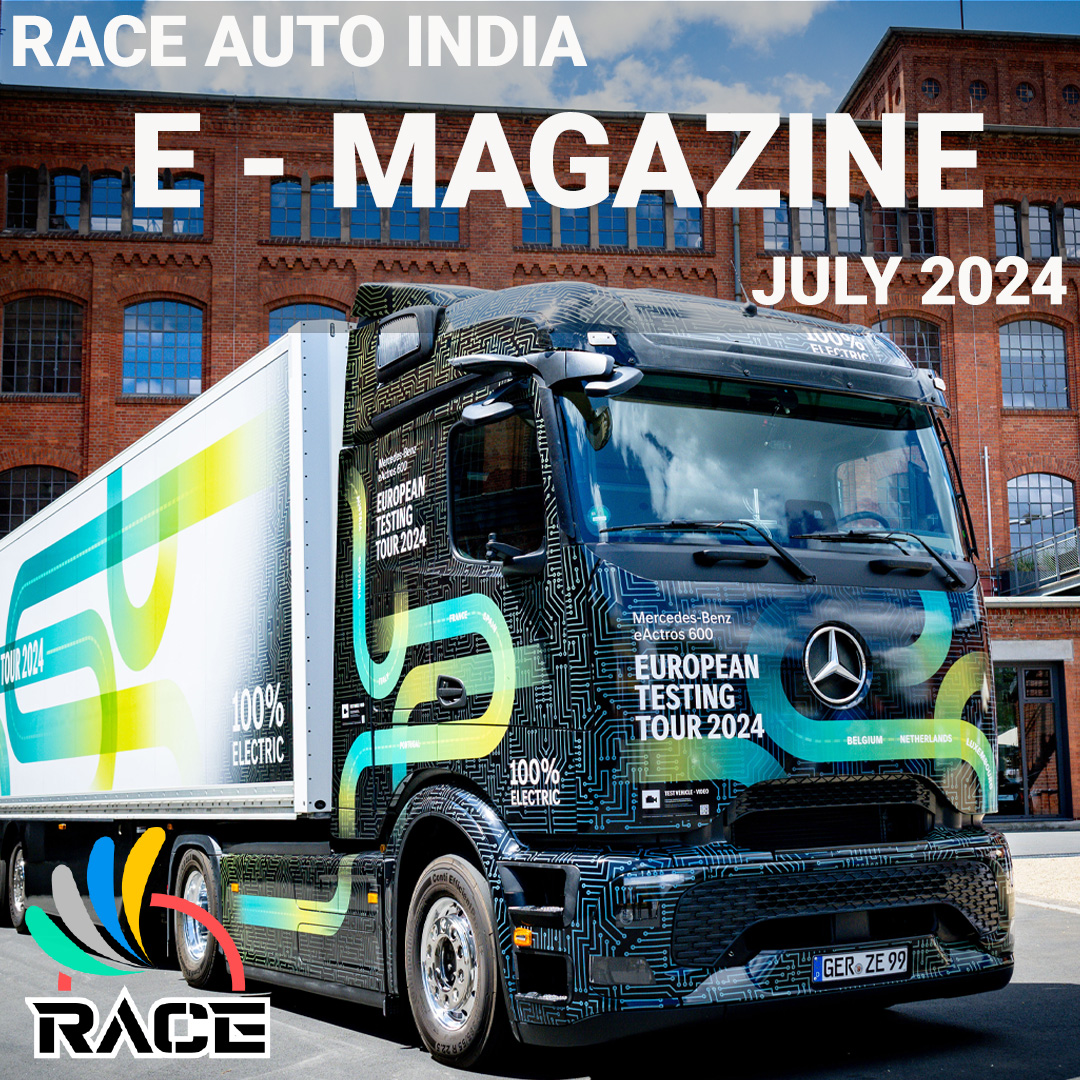ZF develops Cruise Control with Adaptive Technology
The ZF Eco Control 4 ACC, a predictive adaptive cruise control (ACC) that increases range by up to 8%

Friedrichshafen, Germany / Zurich, Switzerland- ZF., has created ZF Eco Control 4 ACC, a predictive adaptive cruise control (ACC) that increases range by up to 8%. A Model Predictive Control (MPC) optimization method from Embotech is a key element of this ACC add-on. It assesses in-vehicle data about the best times for the powertrain to operate as well as map data on bends, gradients, and uphill and downhill runs in real time.
Successful field tests by ZF have shown that Eco Control 4 ACC can achieve a range gain of up to eight percent in real world traffic. As an add-on function for series ACCs, it can be used in both passenger cars and commercial vehicles, regardless of the type of powertrain.
Uwe Class, Vice President Advanced Systems Development at ZF said “Eco Control 4 ACC is a ground-breaking development that brings us a significant step closer to Vision Zero emissions. Above all, this solution is practical for everyday use and available for series production.”
Alexander Domahidi, CTO and Cofounder of Embotech said that the Eco Control 4 ACC plays an important role in CO2 emissions reductions formulated by a few algorithms having a potential to save about 8%.
MPC optimization algorithm maximizes efficiency or minimizes travel time
The choice made by each driver as to whether to set the predictive cruise control to maximize efficiency or reduce travel times serves as the foundation for the best driving strategy. It's also conceivable to combine the two approaches in a sensible way. The assistance system also aligns itself as closely as feasible to the driver's chosen speed. Everything else operates automatically based on these pre-settings.
The algorithm is currently evaluating the operational data of the powertrain system and the map data in the navigation system continually for the following 500 meters. This implies that information about the upcoming curves, speed limits, and uphill and downhill grades are continuously entered into the evaluation and the support system makes an effort to optimize the balance between time and energy. This control method is less strictly rule-based than more traditional adaptive cruise control systems: The software optimizes by comparing all of the default parameters to all potential use scenarios continuously and in real time over a 500 meter horizon. The system also makes use of the efficiency maps for the powertrain to optimize the present operating point.
ZF’s technology controls the acceleration and braking and provide the necessary information for the assistance system based on its system understanding of the entire vehicle while Embotech contributes its in-depth knowledge of the proper algorithms for evaluating this data in real-time and its embedded solutions. Overall, the two collaborators have created a system that may sustainably lessen the environmental load while giving drivers greater range and reduced running costs without sacrificing comfort. ZF has a wide range of potential usage, from passenger automobiles to buses and huge commercial vehicles.


